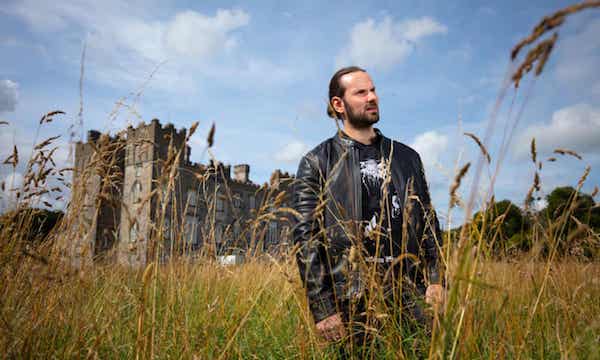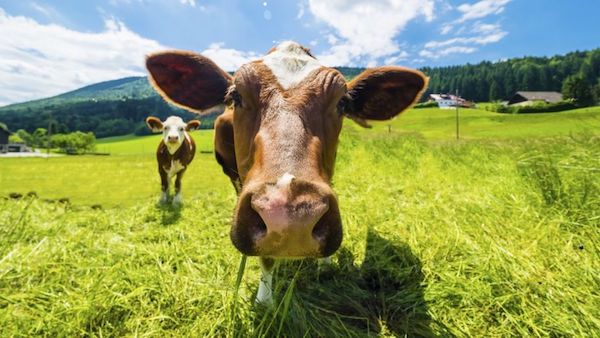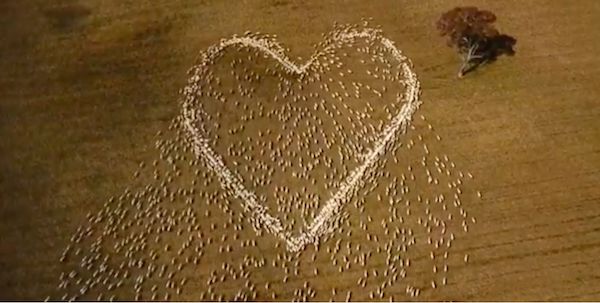

(quote)
‘People think you’re an idiot’: death metal Irish baron rewilds his estate
Trees, grasses and wildlife are returning as Lord Dunsany recreates a vanished landscape in County Meath
Randal Plunkett strides through the hip-high grass of Dunsany, a 650-hectare (1,600-acre) estate in the middle of Ireland, trailed by an invisible swarm of midges and his four jack russell terriers: Tiny, Lumpy, Chow and Beavis & Butt-Head.
The cattle and sheep are long gone, so too are the lawns and many of the crops. In their place is a riot of shrubs, flowers and trees, along with insects and creatures that call this fledgling wilderness their home. It is probably Ireland’s most ambitious attempt at rewilding on private land, an attempt to recreate a vanished landscape in a swath of County Meath, 20 miles north-west of Dublin.
According to the UN, the world needs to rewild and restore an area the size of China to meet commitments on nature and the climate – but not everyone applauds Ireland’s pioneering effort. “You’d be surprised when you live in a castle how many times people think you’re an idiot,” says Plunkett, the 21st baron of Dunsany.
The 38-year-old, who was once a steak-eating bodybuilding death metal fan with no interest in land, is now vegan and on an environmental mission. He still loves death metal, and sports a ponytail and (fake) leather jacket, but he decided seven years ago to turn over 300 hectares of his estate to nature – no livestock, planting, sowing or weeding.
Plunkett says vindication has come in multiple forms. Before, the estate had just three types of grass, now it has 23. “I didn’t do it, the birds did.” Trees regenerated and multiplied – oak, ash, beech, Scots pine and black poplar. “I see a lot of saplings growing that I haven’t planted.” Lush, diverse vegetation attracted butterflies and other insects – “it’s like a buffet for them” – which drew more birds, including rarely seen woodpeckers, barn owls, red kites and sparrowhawks.
Botanists from Trinity College Dublin have started visiting to study the transformation. Last year Plunkett became the first Irish member of the European Rewilding Network, an advocacy group for wildernesses across Europe. In one striking success, wildcats have returned to Dutch forests after centuries of absence.
Ireland has a poor environmental record, despite its green image. In the 1980s it had more than 500 rivers and lakes with pristine water, now there are just 20, according to the Environmental Protection Agency. About 250,000 hectares of wetlands have been lost in the past two decades. Pollution from farming is widely blamed.
The Plunketts are one of Ireland’s most storied families. Installed at Dunsany since 1402, their fortunes rose and fell over the centuries. Randal became the 21st baron after his father, Edward, died in 2011. Educated in the US, England and the Netherlands, he wanted to make films, not manage a farm and high-maintenance castle. “I’ve never been a country bumpkin. I saw it as a burden, a life of servitude.”
Uneasy about the climate crisis, at first Plunkett tried converting the estate to organic farming. When concern about the planet turned to alarm, he became vegan and decided to let a chunk of the estate revert to nature. He also resolved to block poachers and horse-mounted hunters: “I decided to go to war.”
Plunkett patrolled the estate’s forests and meadows, confronted interlopers, filmed them, summoned police and threatened legal action. “I’ve been threatened to my face and on social media with being beaten up, having my tyres slashed, you name it.” He is bracing for the resumption of hunting season: “Come September, all hell breaks loose.”
How the baron of Dunsany carried out an ambitious rewilding project in Meath Like his ancestors, Randal Plunkett was once able to look from the windows of Dunsany Castle, between Trim and Dunshaughlin, Co Meath, onto herds of cattle and sheep that filled many of the estate’s 1,600 acres.
Today, the cattle and sheep are gone: “When I became a vegan, I couldn’t really continue to have livestock here, could I?” the 21st baron of Dunsany, from a line tied by blood linked to St Oliver Plunkett, reflected.
Plunkett is part of the European Rewilding Network, which is attempting to restore nature across the continent, from reintroducing wild bison in the Vanatori-Neamt park in Romania, to the restoration of the huge Naliboksky Forest in Belarus.
If difficult to bring about, the mission statement of the European project – which was set up in 2011 in the Netherlands, but has since spread its influence – is simple. “It’s about letting nature take care of itself, enabling natural processes to shape land and sea, repair damaged ecosystems and restore degraded landscapes,” it declares.
For Randal Plunkett, Ireland’s first member of the project, the work in Dunsany began six years ago with a decision to rewild 750 of the 1,600 acres around Dunsany Castle and rid the plains of the vast estate from sheep and cows.
European Rewilding Network: Dunsany Nature Reserve
The Dunsany Estate, which dates back to the 11th century and is located around 35 kilometres northwest of Dublin, covers 1600 acres (650 hectares) – of this about 750 acres (300 hectares) is now being rewilded as the reserve. There is also around 550 acres (220 hectares) of forest, and there are several springs and streams flowing through marshy areas. The land not forested or being rewilded is used to grow crops. The soil here is very fertile, so the income from agriculture is enough to support the estate, along with the income from the film production facilities based here. There’s a lot of wildlife, from foxes, badgers and otters to owls, red deer and various birds of prey. The estate is home to a film production company called Dunsany Productions, every film that comes through the company has a mandatory donation of a tree to be planted on the estate. In 2014, all animal agriculture was abandoned and all fields and forests that once contained farm animals were left to rewild.
(unquote)
Image courtesy Patrick Bolger and Dunsany Nature Reserve






